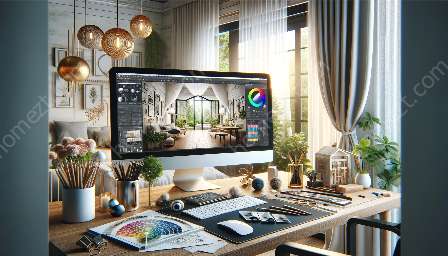As the use of design software becomes more prevalent in the field of interior design and styling, it is important to consider the ethical implications of its development and use. This topic cluster aims to provide a comprehensive overview of the ethical considerations associated with design software and tools in the context of interior design.
Understanding the Impact of Design Software in Interior Design and Styling
Before delving into the ethical considerations, it is essential to understand the impact of design software on the profession of interior design and styling. Design software has revolutionized the way designers conceptualize, create, and present their ideas. It has streamlined the design process, allowing for greater efficiency and accuracy in design development. Additionally, design software has enhanced visualization capabilities, enabling clients to better understand and engage with design proposals.
Furthermore, the use of design software has expanded the scope of design possibilities, allowing designers to experiment with complex forms, materials, and configurations that were previously challenging to conceptualize. This has contributed to the evolution of design aesthetics and pushed the boundaries of creativity within the field.
Ethical Considerations in the Development of Design Software
When discussing the ethical considerations in the development of design software for interior design and styling, several key areas must be addressed.
Accuracy and Reliability
Design software should prioritize accuracy and reliability in its output. The software's ability to accurately represent design concepts and specifications is crucial to the integrity of the design process. Ethical concerns arise when design software produces misleading or unrealistic representations, potentially leading to misinformed decision-making by clients and other stakeholders.
Intellectual Property and Copyright
The development of design software must respect intellectual property rights and copyright laws. This includes the protection of original design concepts, materials, and specifications input by designers. Ethical software development should prioritize features that safeguard intellectual property and prevent unauthorized use or replication of design elements.
Accessibility and Inclusivity
Design software should strive to be accessible and inclusive, catering to a diverse user base that encompasses different skill levels, abilities, and backgrounds. Ethical considerations in software development necessitate the implementation of user-friendly interfaces, comprehensive tutorials, and support resources that enable all users to engage with the software effectively.
Data Privacy and Security
As design software often involves the storage and transfer of sensitive client and project data, ethical development practices should prioritize robust data privacy and security measures. Software developers must adhere to industry standards and regulations to safeguard against unauthorized access, data breaches, and misuse of confidential information.
Ethical Considerations in the Use of Design Software
Once design software is developed and implemented, ethical considerations extend to its use in the context of interior design and styling.
Transparency and Disclosure
Designers should practice transparency and disclose the use of design software in their design processes to clients and stakeholders. This ensures that all parties are informed about the tools and methods employed, fostering trust and ethical conduct within the design collaboration.
Professional Integrity
Designers using software tools should uphold professional integrity by utilizing the software to enhance their design process, rather than relying solely on automated functionalities. Ethical use of design software involves leveraging its capabilities to amplify creativity and efficiency while maintaining the designer's expertise and creative input.
Client Education and Empowerment
An ethical approach to using design software involves educating and empowering clients to understand the software's role in the design process. Clients should be provided with insights into how the software facilitates design development and be encouraged to participate in the collaborative exploration of design options.
Conclusion
The widespread adoption of design software in the field of interior design and styling presents both opportunities and ethical challenges. Understanding the impact of design software, along with the ethical considerations in its development and use, is essential for maintaining ethical standards and upholding the integrity of the profession. By engaging with these ethical considerations, designers and software developers can contribute to a responsible and ethical evolution of design practices.


























